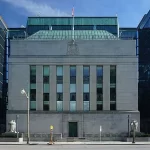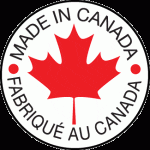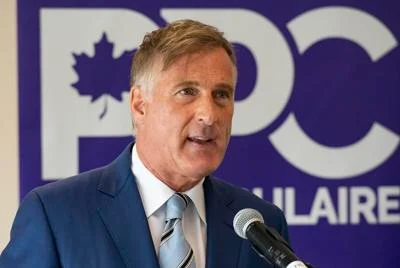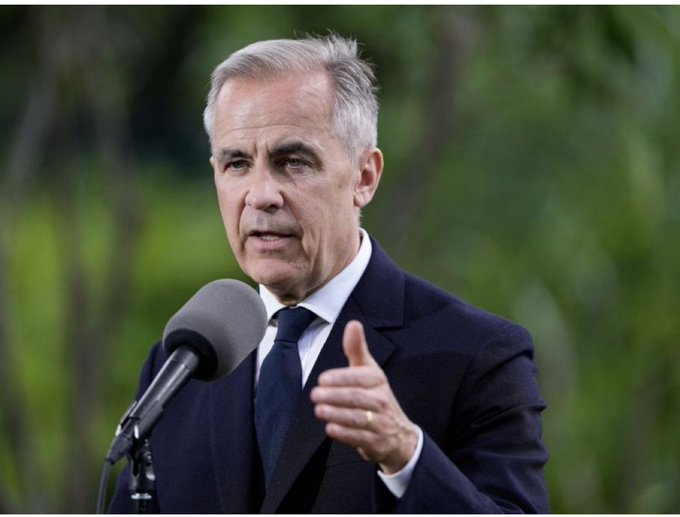In recent revelations, it has come to light that since 2015, the Canadian federal government, led by Prime Minister Justin Trudeau’s Liberal Party, has allocated over $23 million of taxpayers’ money to support initiatives aligned with the World Economic Forum (WEF), including substantial investments in a digital ID program.
The WEF Projects and Government Spending
According to documents obtained by The Epoch Times, five governmental departments were directly involved in funding WEF projects, while two others contributed internally to these initiatives. This financial support spanned from November 4, 2015, coinciding with Trudeau’s election, to June 20, 2023.
A significant portion of these funds was channeled into one of the WEF’s most recent digital identity projects, known as the “Known Traveller Digital Identity” (KTDI) program. The Canadian Border Services Agency (CBSA) allocated $3.49 million for internal research and development of the KTDI program, which aimed to explore “biometric identity management” and streamline pre-border declaration submissions.
Transport Canada also contributed with $399,938 for salaries and $238,627 for other expenses related to the KTDI program before its indefinite delay. The KTDI program involved collaboration between the Canadian government, the government of the Netherlands, and various airports to enhance global travel security through advancements in biometrics.
“The Known Traveller Digital Identity, or KTDI, is a World Economic Forum initiative that brings together a global consortium of individuals, governments, authorities, and the travel industry to enhance security in world travel,” as stated on the KTDI website.
These undisclosed financial records were brought to light through Order Paper questions raised by Conservative Party of Canada MP Leslyn Lewis in June 2023. Lewis sought complete transparency regarding all contracts, transfer payments, memoranda of understanding, letters of intent, charters, accords, projects, and associations between the Canadian government and the WEF since November 4, 2015. The response to these questions resulted in a comprehensive 127-page report, which was tabled in the House of Commons on September 18, 2023.
Controversy Surrounding the KTDI Programs
Leslyn Lewis, a critic of the WEF and its KTDI programs, has described them as “glitching failures.” As of April 2023, Canada has disengaged from the KTDI project.
Furthermore, the disclosed records reveal that Canada’s Environment and Climate Change Department (ECCC) financially supported the WEF in producing a report endorsing a radical environmental agenda. This agenda included proposals such as increasing the government’s carbon tax, aligning with the WEF’s goals.
Deep-rooted Ties Between WEF and Trudeau Liberals
The connection between the WEF and the Trudeau Liberals runs deep, with the WEF being the driving force behind the socialist “Great Reset” agenda, spearheaded by Klaus Schwab. Trudeau and some of his cabinet members are actively involved with this globalist group. Schwab himself has acknowledged relying on Canadian Deputy Prime Minister and Finance Minister Chrystia Freeland to advance his globalist objectives. Notably, Freeland currently serves as a member of the WEF Board of Trustees.
In January, Freeland attended a WEF meeting and participated in a public panel discussion on Ukraine, highlighting the intertwined relationship between the Canadian government and the WEF.
Government Spending through Global Affairs Canada
The majority of the allocated funds, approximately $21.9 million, were channeled through Global Affairs Canada (GAC) for various projects related to food security and international trade. This included a substantial $6 million investment in the “Global Challenge on Food Security and Agriculture” and “Grow Asia.” The Food Security Challenge aimed to foster multi-stakeholder partnerships and mobilize investments to enhance food security, nutrition, and agricultural growth.
Additionally, GAC allocated approximately $10 million to the “Global Alliance for Trade Facilitation,” designed to support sustainable economic growth and increased employment through enhanced trade. Another $5.933 million went towards the Global Plastic Action Partnership, focusing on combating plastic pollution globally.
Canada’s Department of Finance also contributed $9,841 for travel expenses, sending Jennifer Blanke to a WEF conference. Blanke had previously served on a Canadian committee for economic growth and had a background as a former chief economist with the WEF.
Canada’s Department of Innovation, Science, and Economic Development Canada (ISED) invested $53,756 to support the WEF’s Center for the Fourth Industrial Revolution, securing a fellowship with the center. Finally, Canada’s Fisheries and Oceans Department allocated nearly $1 million to support the WEF’s “Friends of Ocean Action.”
Alignment with Global Environmental Goals
The Trudeau government’s current environmental objectives align closely with the United Nations’ “2030 Agenda for Sustainable Development.” This includes initiatives to phase out coal-fired power plants, reduce fertilizer usage, and decrease natural gas consumption over the coming decades—priorities that mirror the WEF’s stance.
The WEF has actively advocated for transitioning away from fossil fuels and promoting “green” energy sources. The Trudeau government’s policies have reflected this by implementing a carbon tax and taking measures that impact the nation’s oil and gas industries.
In conclusion, the revelations regarding Canadian government spending on WEF projects raise important questions about the alignment of political agendas and the use of taxpayer funds. The ties between the WEF and the Canadian government are complex and warrant further scrutiny to ensure transparency and accountability in the allocation of public resources.







